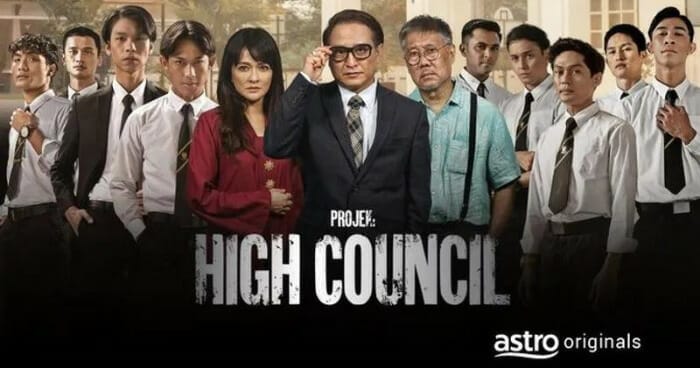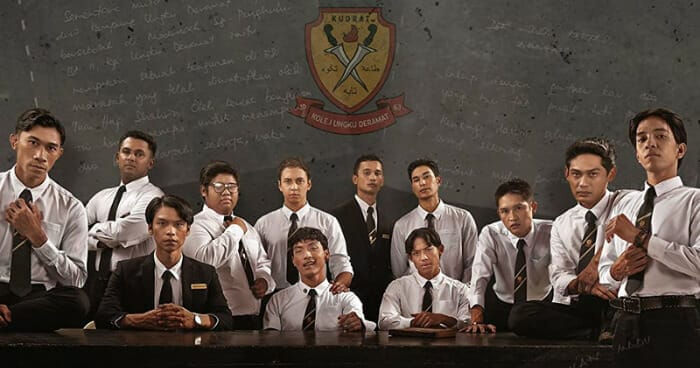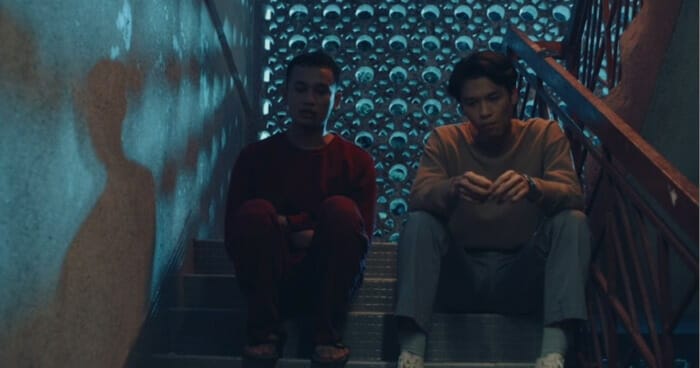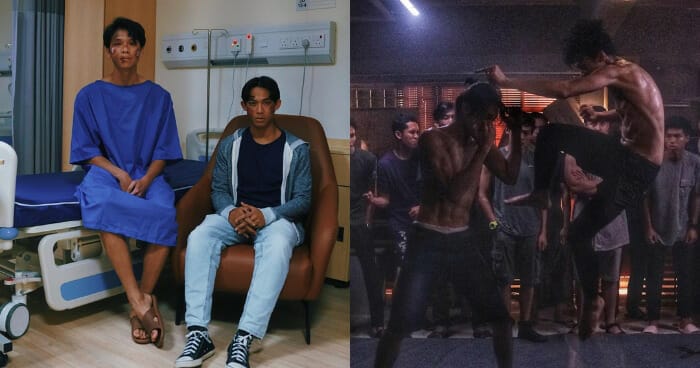
Photo: IMDb
‘Projek: High Council’ has recently come to a close, leaving a lasting impact on viewers
Inspired by a true Malaysian story, Projek: High Council is a fictional drama that sheds light on the harsh realities faced by boarding school students. Through its narrative, the 10-episode series exposed the ongoing bullying prevalent in Malaysian high schools. The show even featured some big names in the Malaysian film industry including Nadhir Nasar, Mierul Aiman, Amir Ahnaf, Naim Daniel, Sazzy Falak, Azhar Sulaiman, and Daiyan Trisha.
The Malaysian drama takes inspiration from real-stories focusing on disputes, bullying, peer pressure, psychology, and troubled home lives. Ultimately, the show aimed to highlight how bullying has been ingrained as a generational tradition in boarding schools.

Photo: IMDb
Raja Jastina Raja Arshad, Head of Astro Shaw and Executive Producer of the TV show has expressed a strong commitment to raising awareness among Malaysian audiences about these issues. By bringing these sensitive topics on screen, the series aimed to encourage a call to action.
As we bid farewell to the final episode of the series, it’s worth reflecting on the real-world issues addressed in “Projek: High Council.” The show may centre around school life, but its themes have resonated with viewers of all ages.
Before delving into these topics, it’s worth noting that there may be some spoilers in this article.

Photo: IMDb
Here’s all the real-life issues tackled in the TV show ‘Projek: High Council’
A spectrum of bullying behaviours
Life in boarding schools can be tough, especially when bullying becomes a pervasive part of the environment. For students living on campus 24/7, there’s no escape from the verbal and mental torture to physical abuse.

Photo: IMDb
In one episode of “Projek: High Council,” Ikhsan faces verbal abuse at the hands of his seniors. Despite reporting the bullying to his teachers, he only faced more consequences, including social isolation and name-calling. The term “Jibam” became a label used to identify Ihsan as a snitch or a rat, further perpetuating his torment. Eventually, Ihsan’s situation became unbearable, forcing him to switch schools. This storyline portrays the lasting impact of verbal abuse. Additionally, it shows how words can cut deep and cause lasting damage.
But bullying at this boarding school isn’t limited to verbal taunts. The show also depicts physical abuse, ranging from half-squad punishments that cause physical pain to outright beatings. In several scenes, students are publicly beaten by seniors.

Photo: IMDb
Tragically, sexual assault is another type of bullying that has been found to occur in boarding schools. In one particularly moving episode of the series, a 14-year-old student was sexually harassed by a senior. Cases of sexual abuse, including rape and molestation, among underage students, may seem inconceivable, but unfortunately, they are a harsh reality that we must face. Shockingly, studies have shown that one in ten students in Malaysia has experienced some form of sexual assault or harassment while attending school.
Ingrained bullying culture
The attention to detail on the aspects of the culture of bulllying in this show deserved all kinds of recognition. The show took a closer look at the board of alumni who were loyal to these traditions, power, and dominance that comes with being at the top of the social hierarchy.
The series narrated a great storyline on the school’s reluctance to address bullying issues to preserve its reputation. However, the pressure put on the principal by parents, school boards, and other stakeholders to keep these issues under wraps only perpetuates the cycle of abuse. It’s a reminder of the reality that many schools face.
Family and Childhood Traumas
“Projek: High Council” also delves into various family themes that add depth to the characters’ lives. One of the main storylines revolves around the relationship between two brothers, Fakhri (Mierul Aiman) and Naim (Nadhir Nasar), who are struggling to come to terms with their parent’s divorce. Despite living in separate households, both boys are haunted by the trauma of a broken family.

Photo: Mierul Aiman / Instagram
The series also accentuated the long-lasting impact of divorce on children, and how it leads to suppressed behavioural issues. Fakhri, for instance, struggles with anger management, which stems from the stress and emotions caused by the divorce. The separation also triggered feelings of betrayal and abandonment, as felt by Naim. The show’s portrayal of these issues was well-executed by the characters.
As children grow up, they are expected to adapt to a new environment and family dynamics. However, this can often lead to suppressed emotions that contribute to the development of anxiety and panic attacks. In “Projek: High Council,” we see Naim’s struggles with panic attacks from a young age. While he gradually learns to cope with them, the attacks continue to affect him well into his teenage years. The show accurately depicts how a wide range of emotions, from sadness and confusion to anger and guilt, can lead to anxiety. By exploring this issue, the series showcased the importance of mental health and the need to address it from a young age.
Toxic Masculinity
The concept of toxic masculinity – a belief that men must be strong, dominant, and unemotional – was a notable theme in the storyline. Some scenes in the show spotlighted how the boys condoned an unhealthy culture of fighting, power, and dominance just because they believed participating meant they were strong men.

Photo: Nadhir Nasar / Instagram
Naim’s trauma with his mother leaving his father made him think that his father’s soft character was a weakness. In cultures where gender roles are strictly defined, Naim’s stay-at-home dad is perceived as weak. Naim grew up adopting his father’s traits but soon decided to toughen up after their parent’s separation.
A projection of Naim’s trauma was seen in a scene where he verbally expresses his fear of being vulnerable. He feared that his mother would abandon him as she did his dad for the same reason making him constantly seeking out her validation. Meanwhile, he seems to show negative feelings towards his father.
The experience of trauma due to parental divorce is not uncommon. The lack of closure can lead to its prolonged effects. In some cases, this can manifest as aggressive behaviour in individuals.
All-in-all, the fictional drama displayed a wonderful narration of these important themes that should be addressed.
You can stream High Council via On Demand and Astro Go. Visit astroshaw.com.my for more information.



